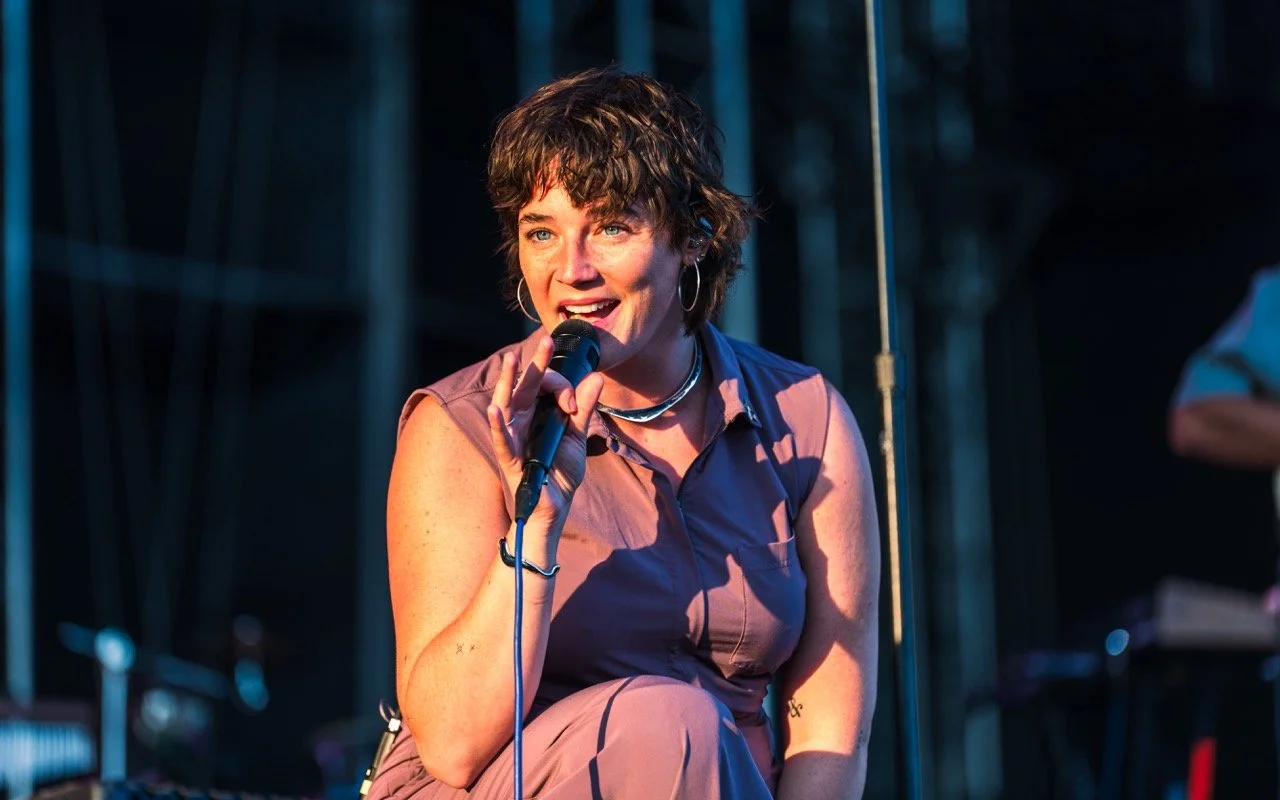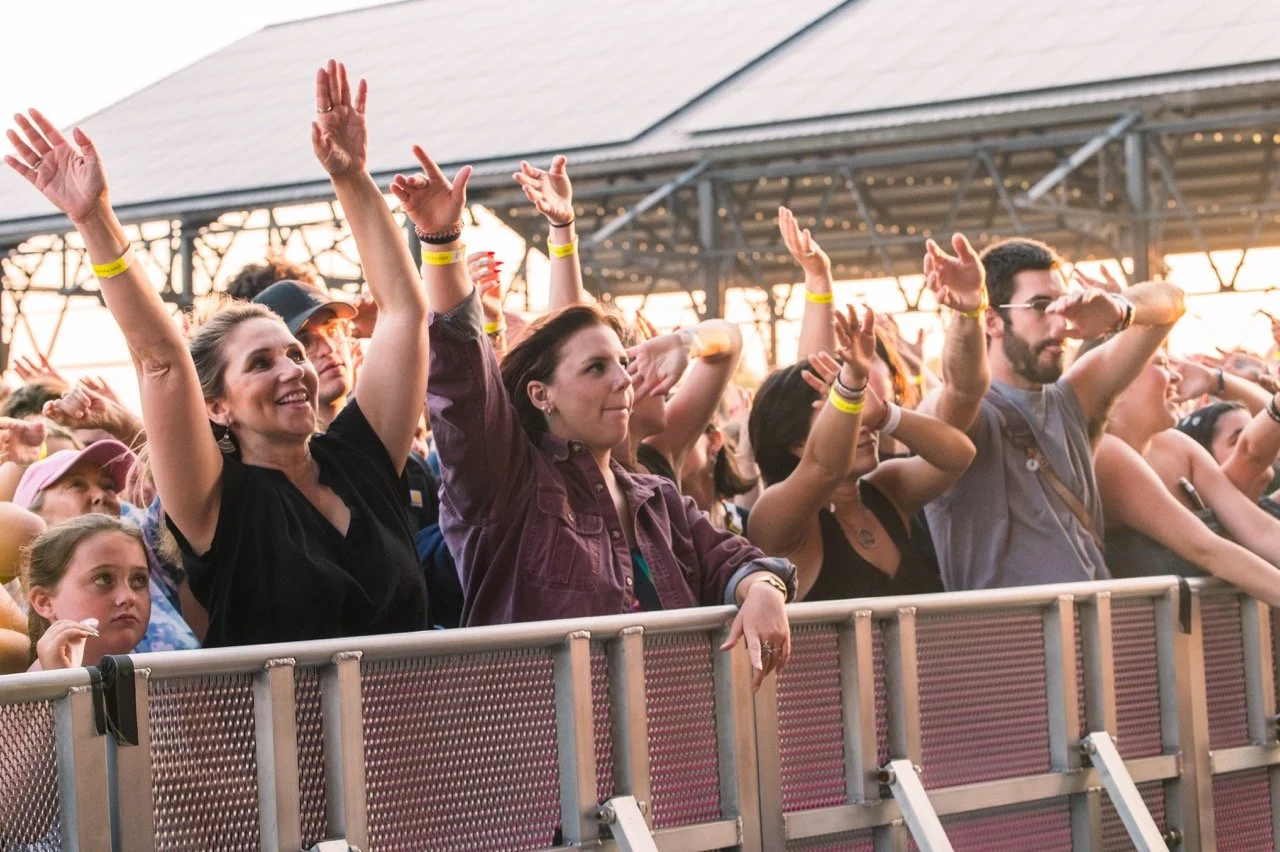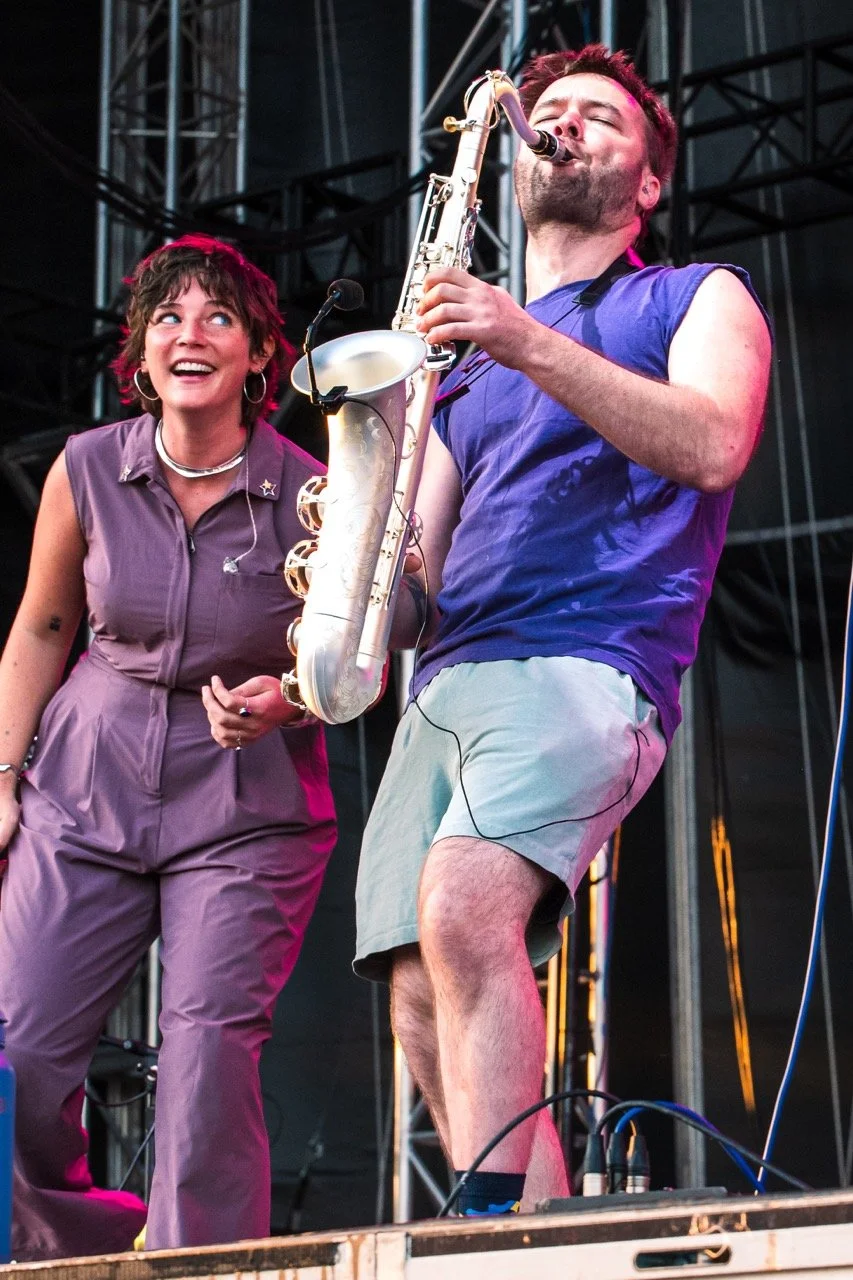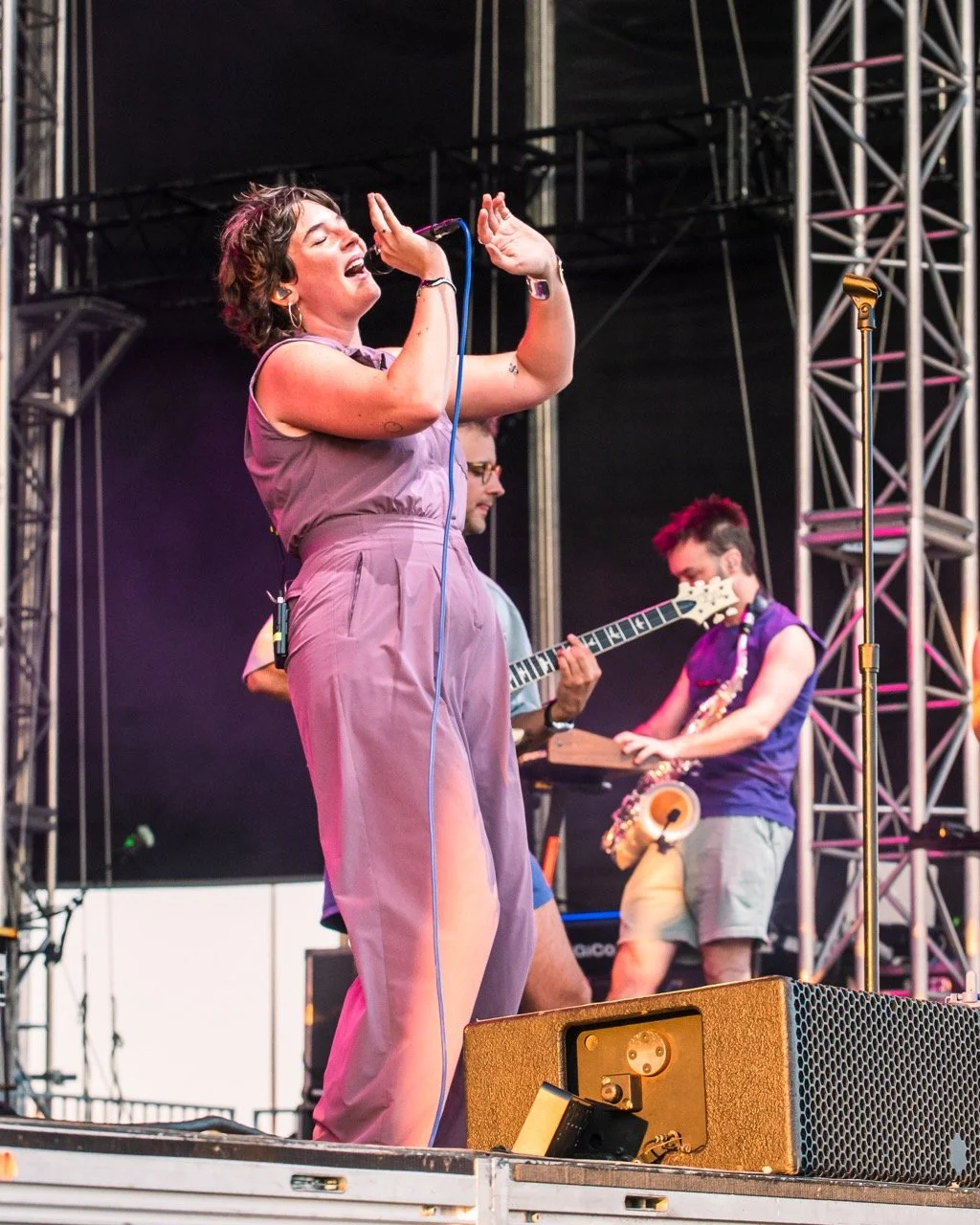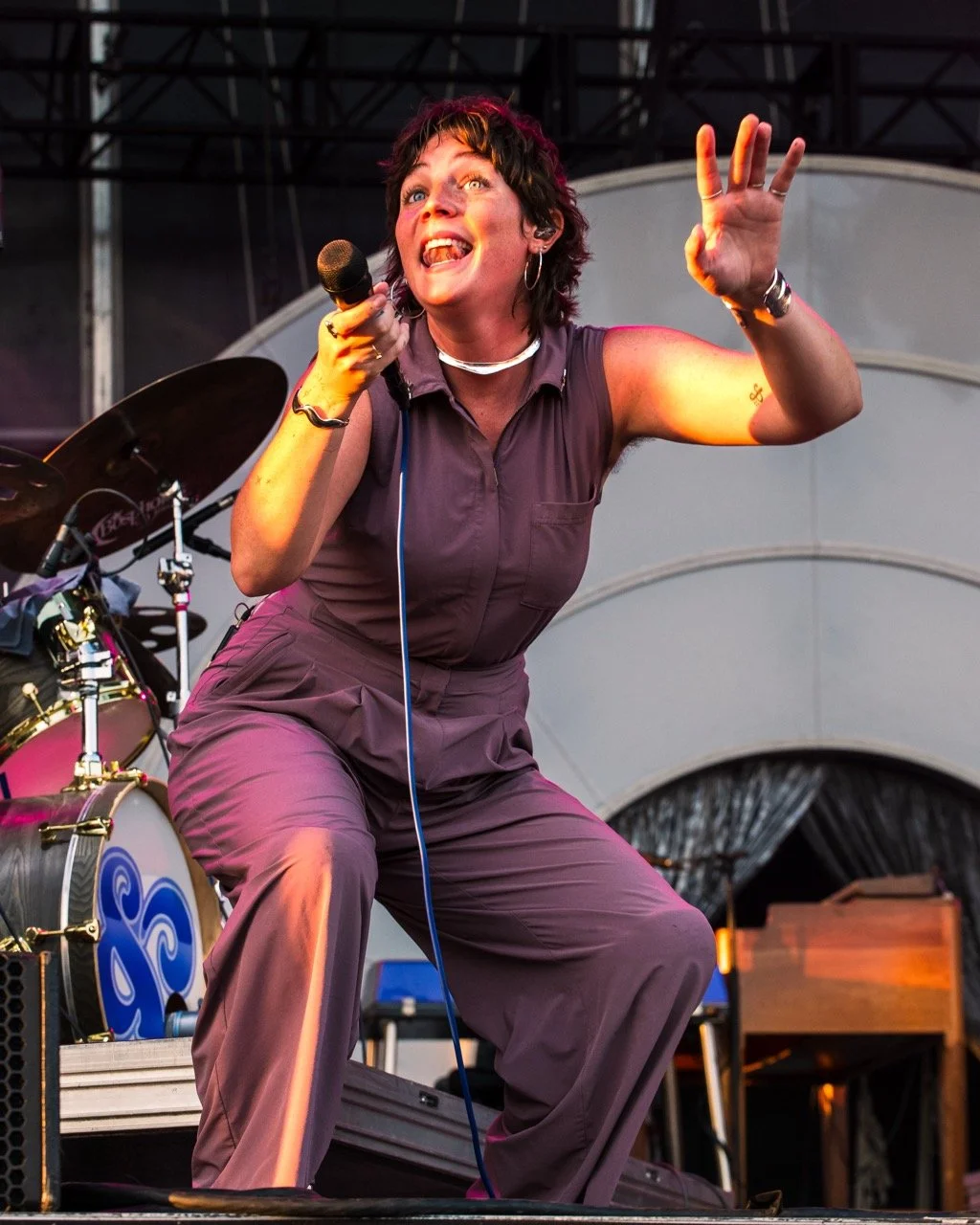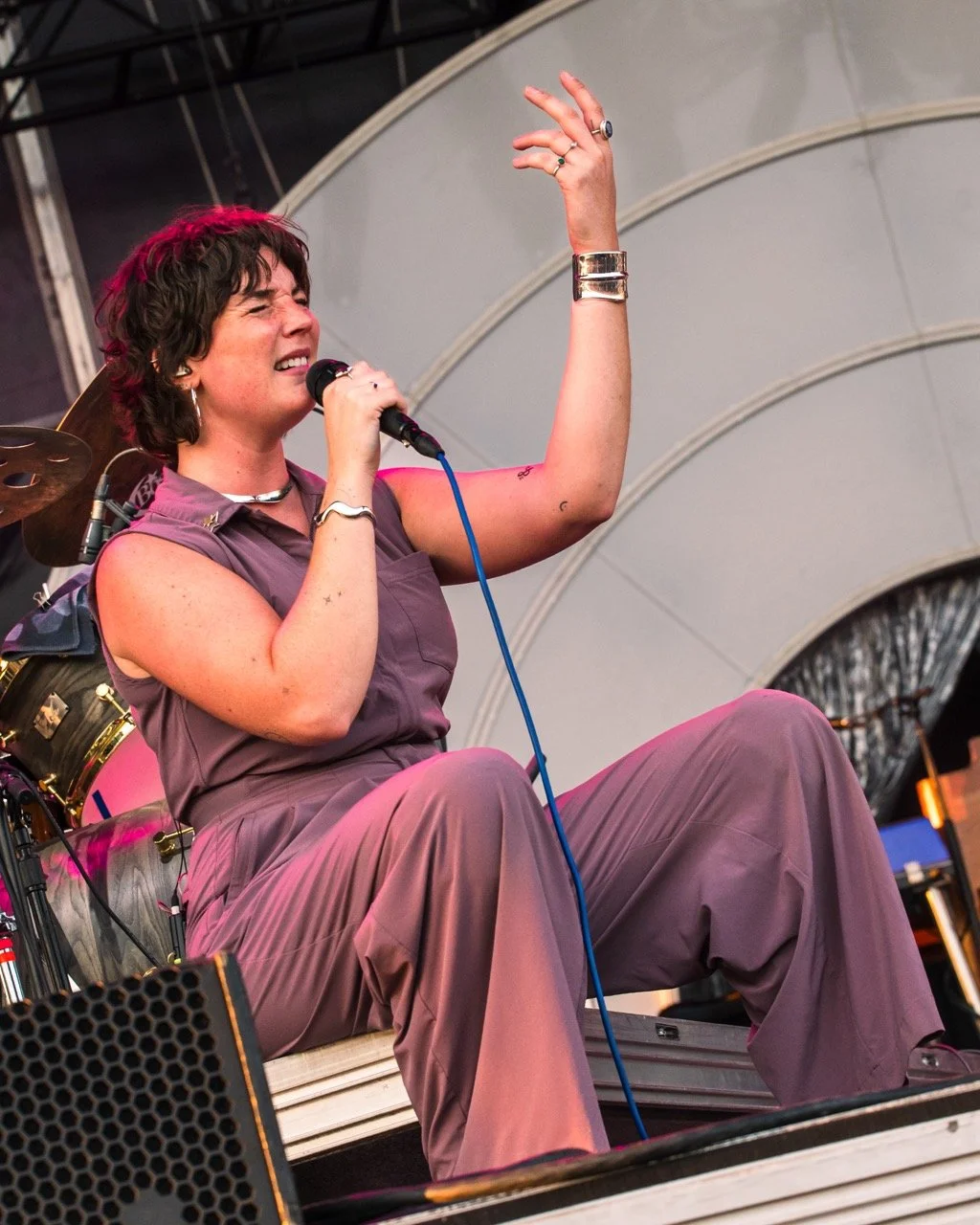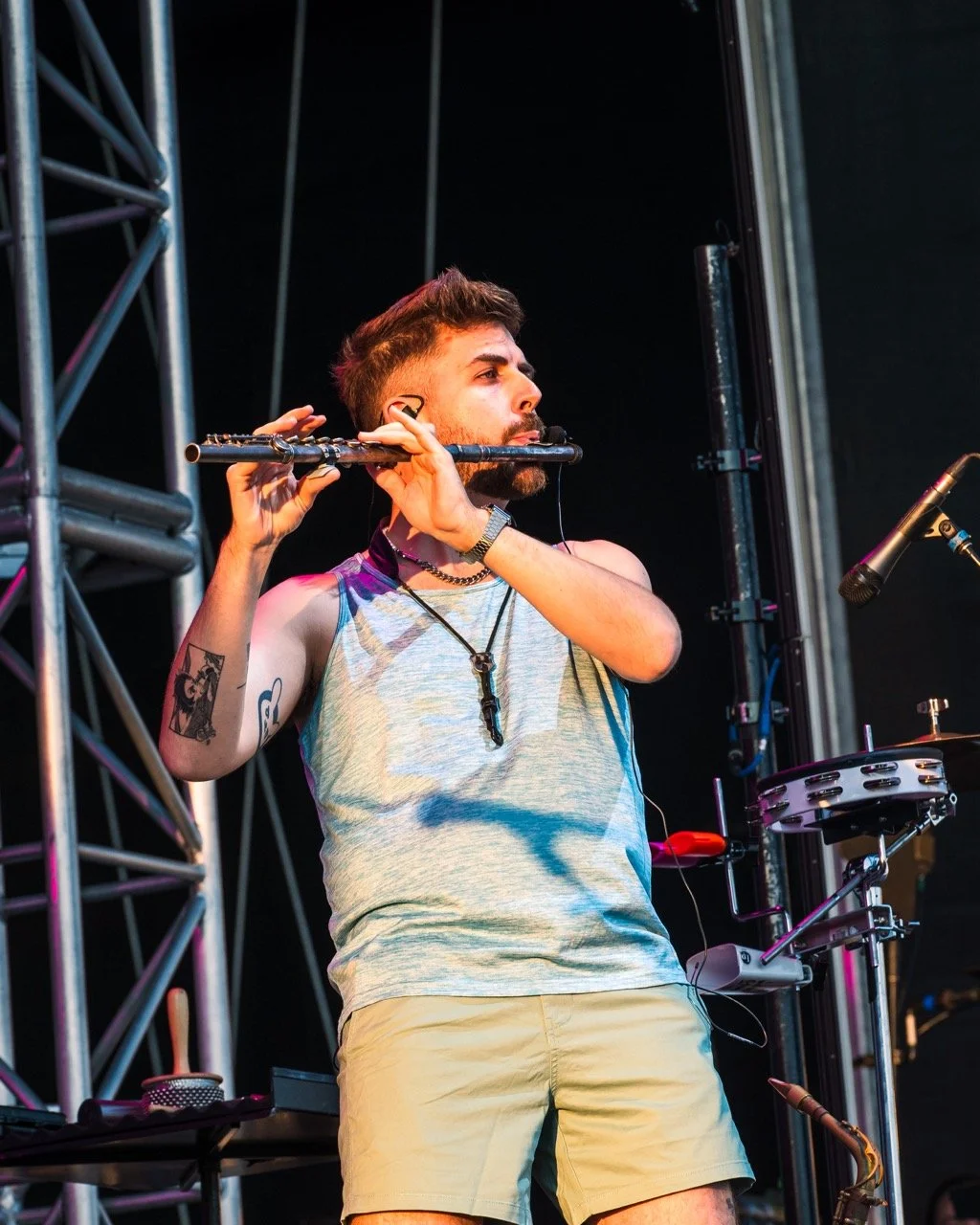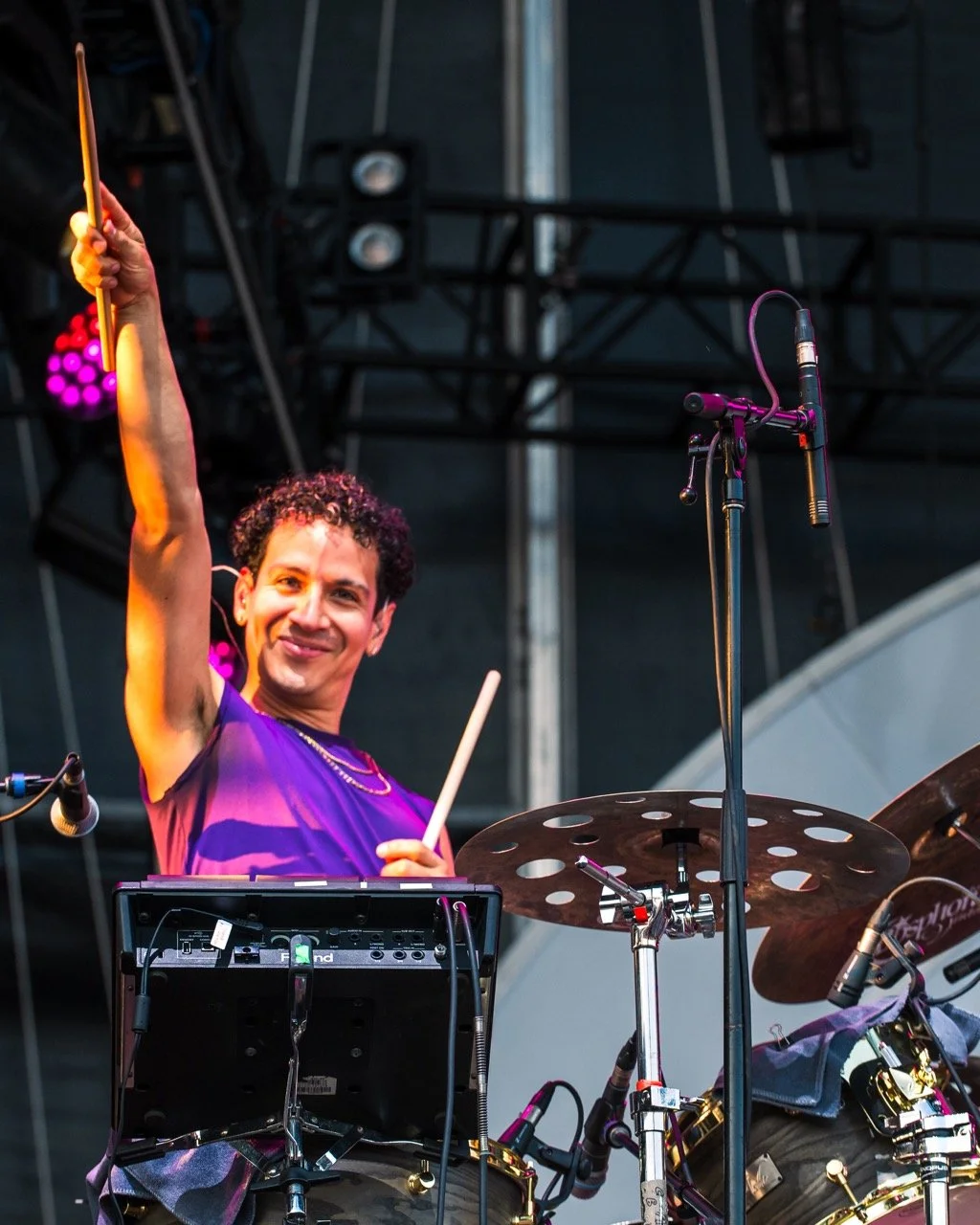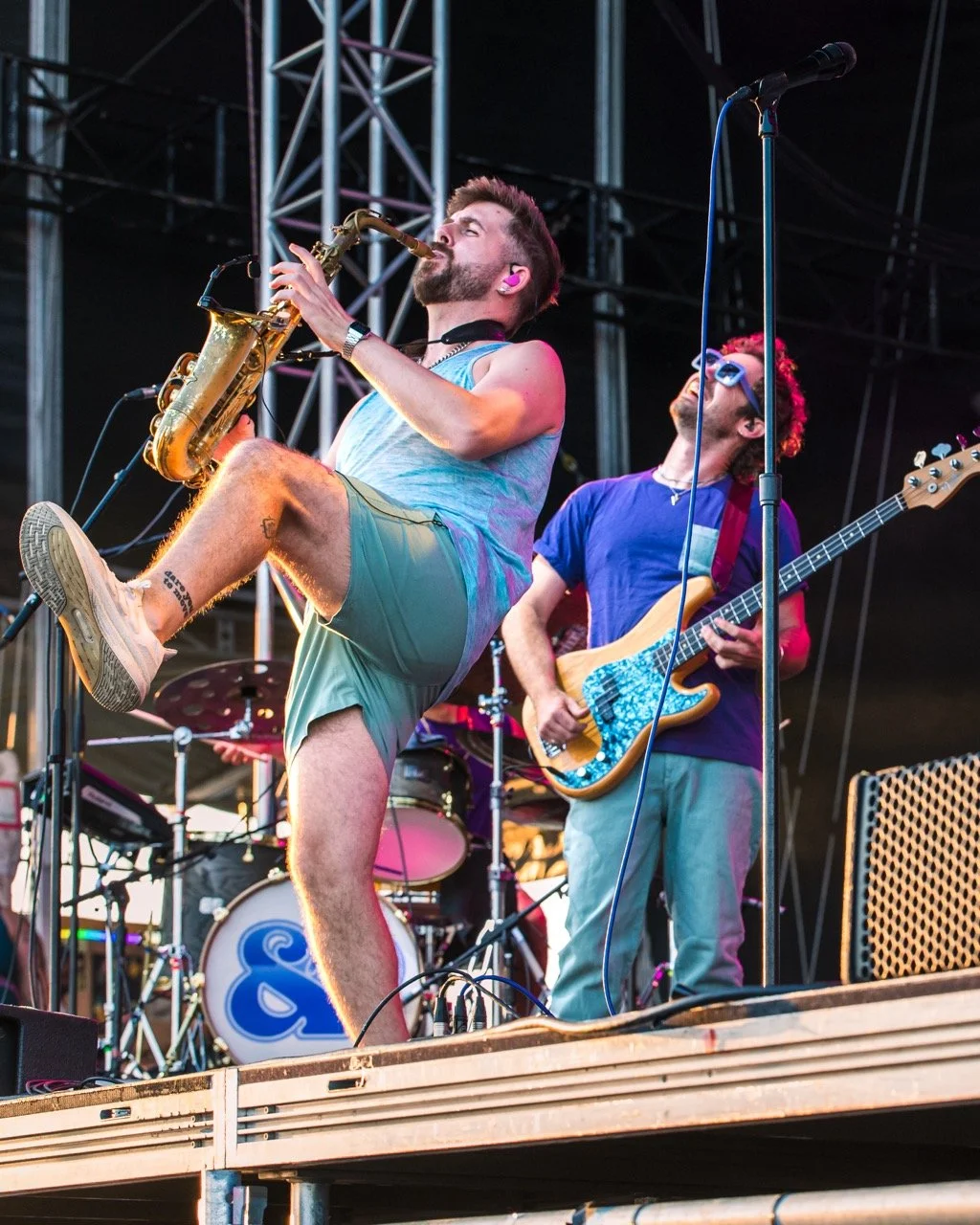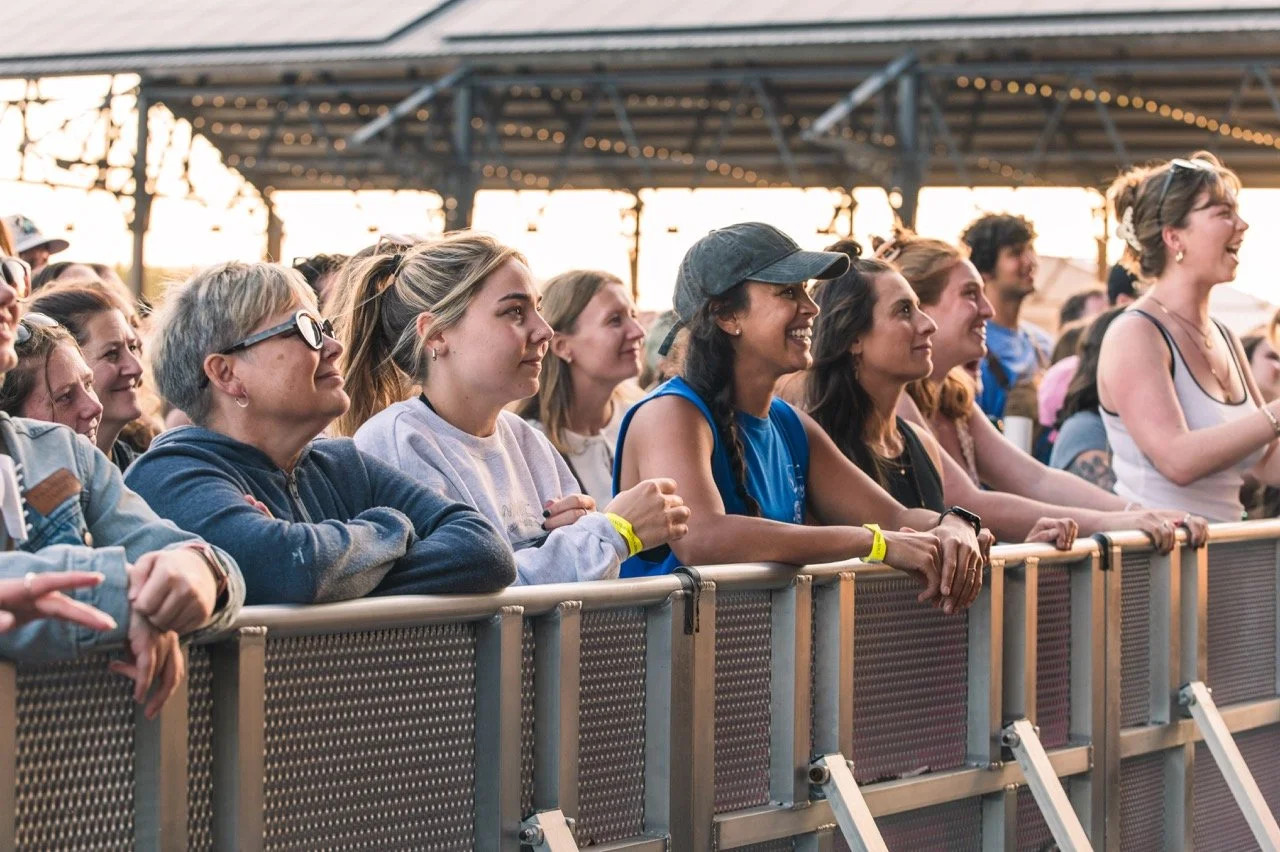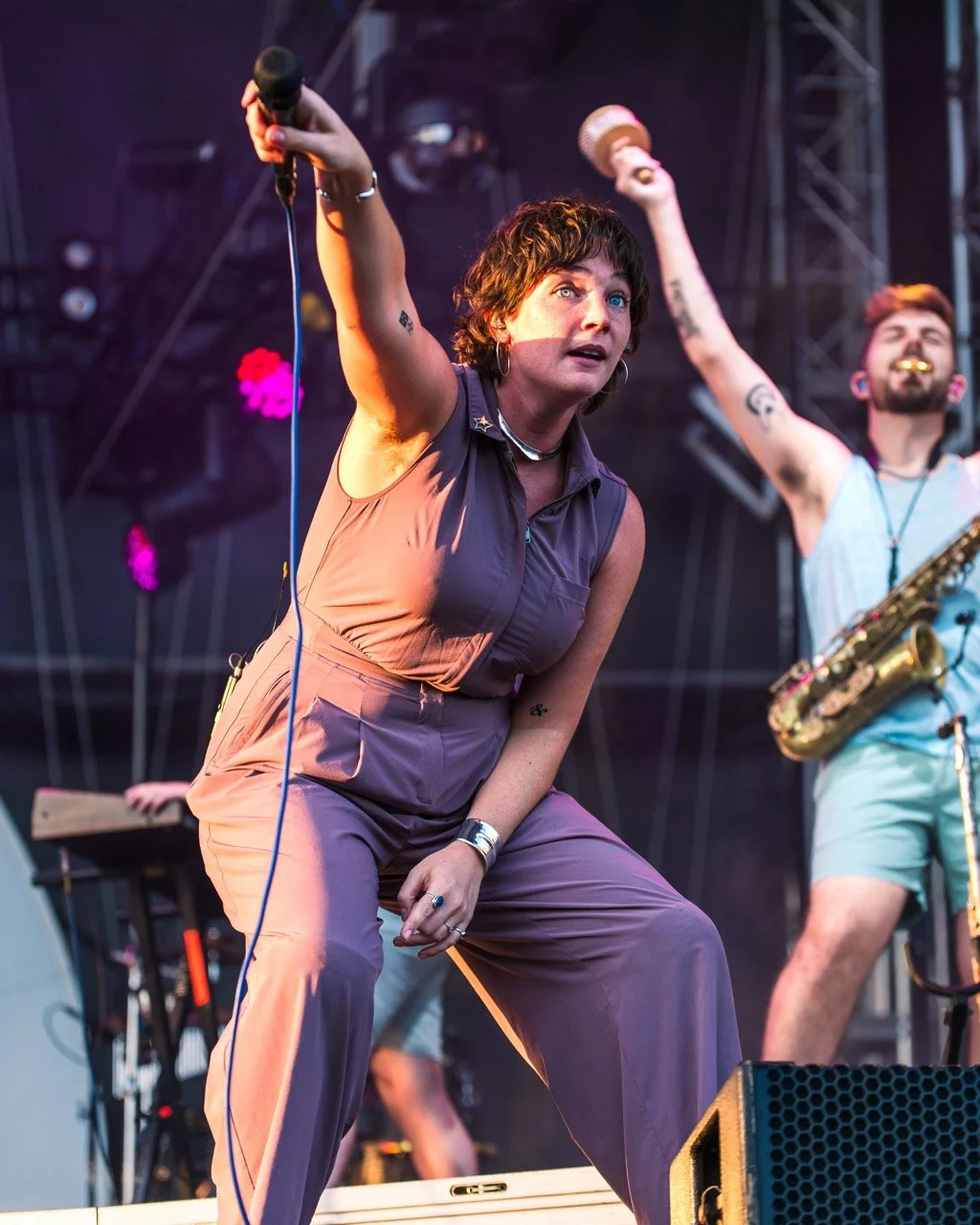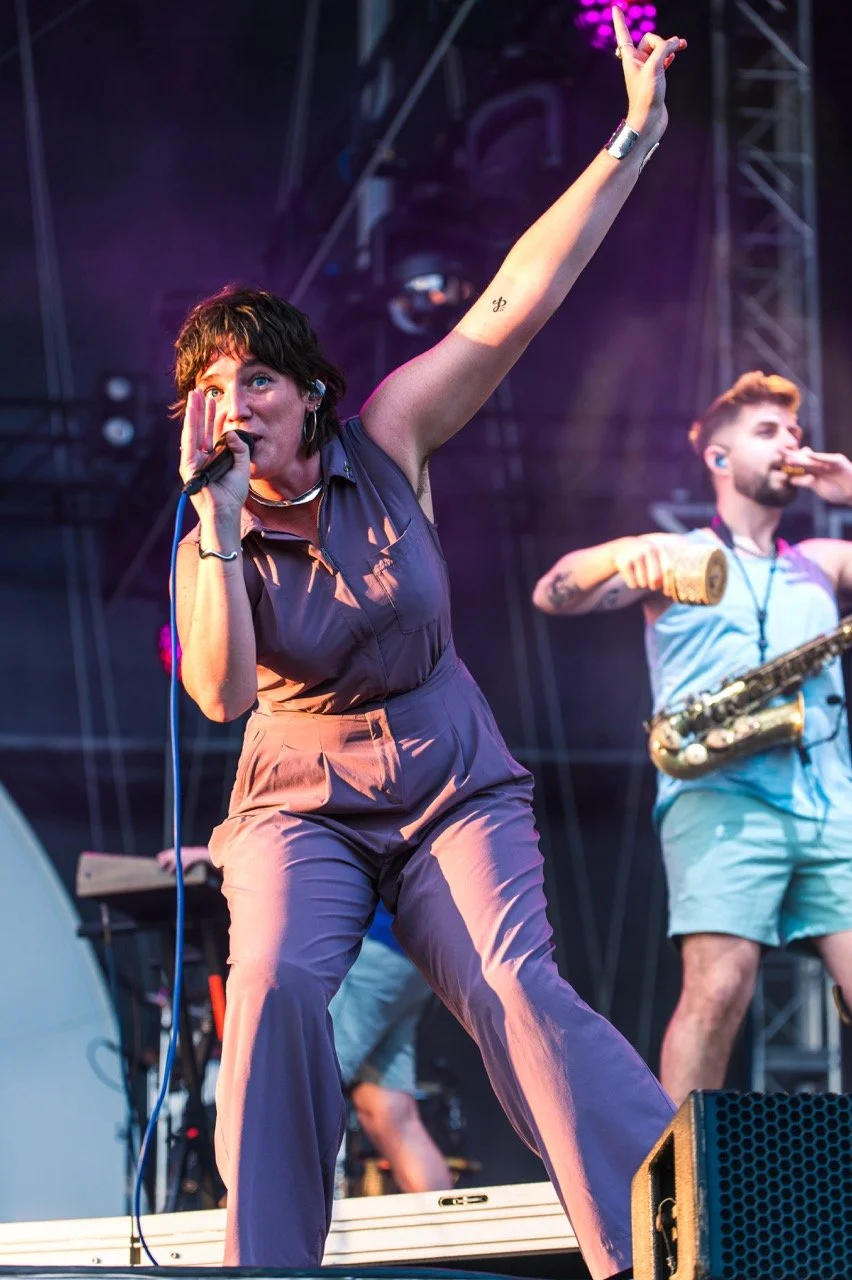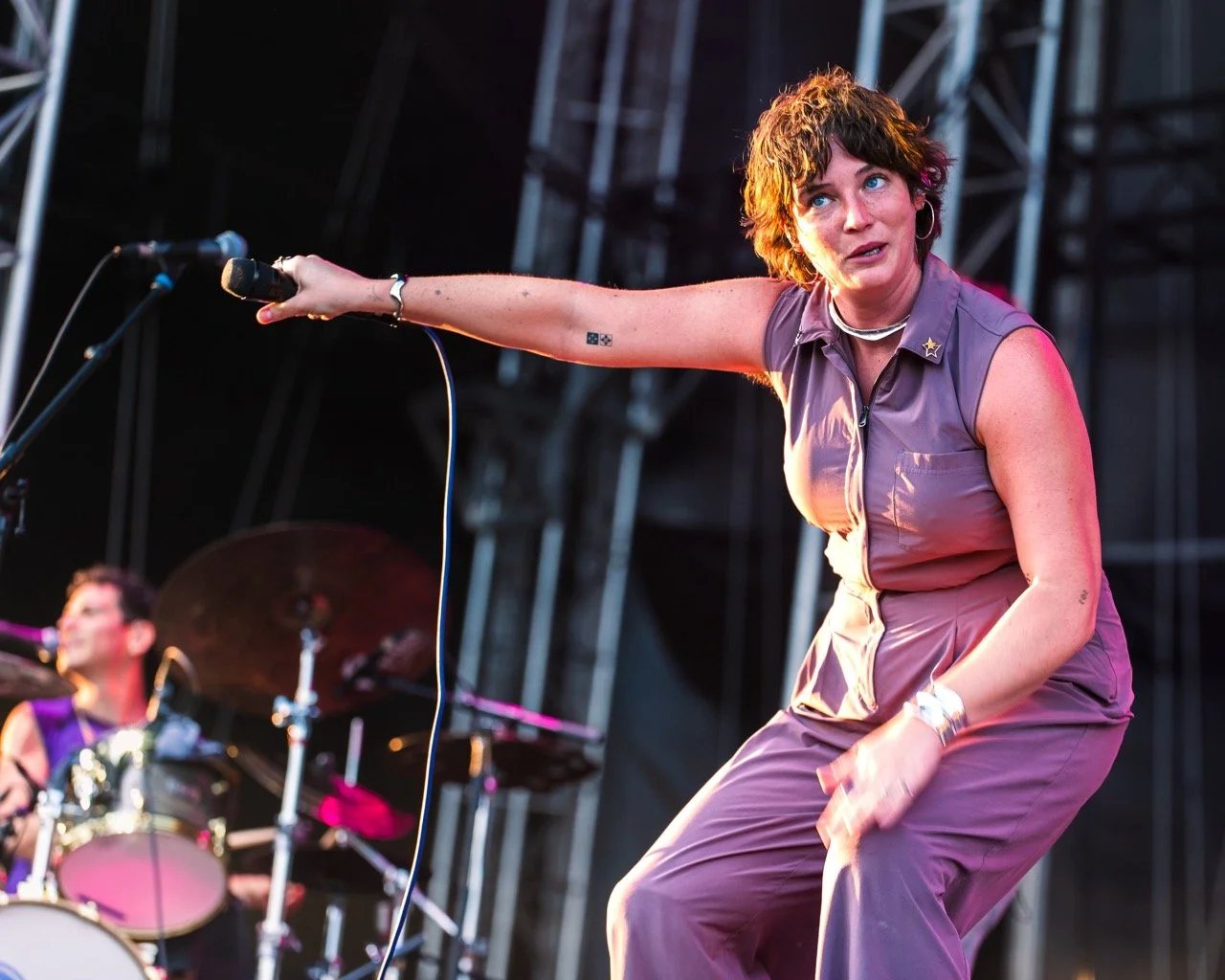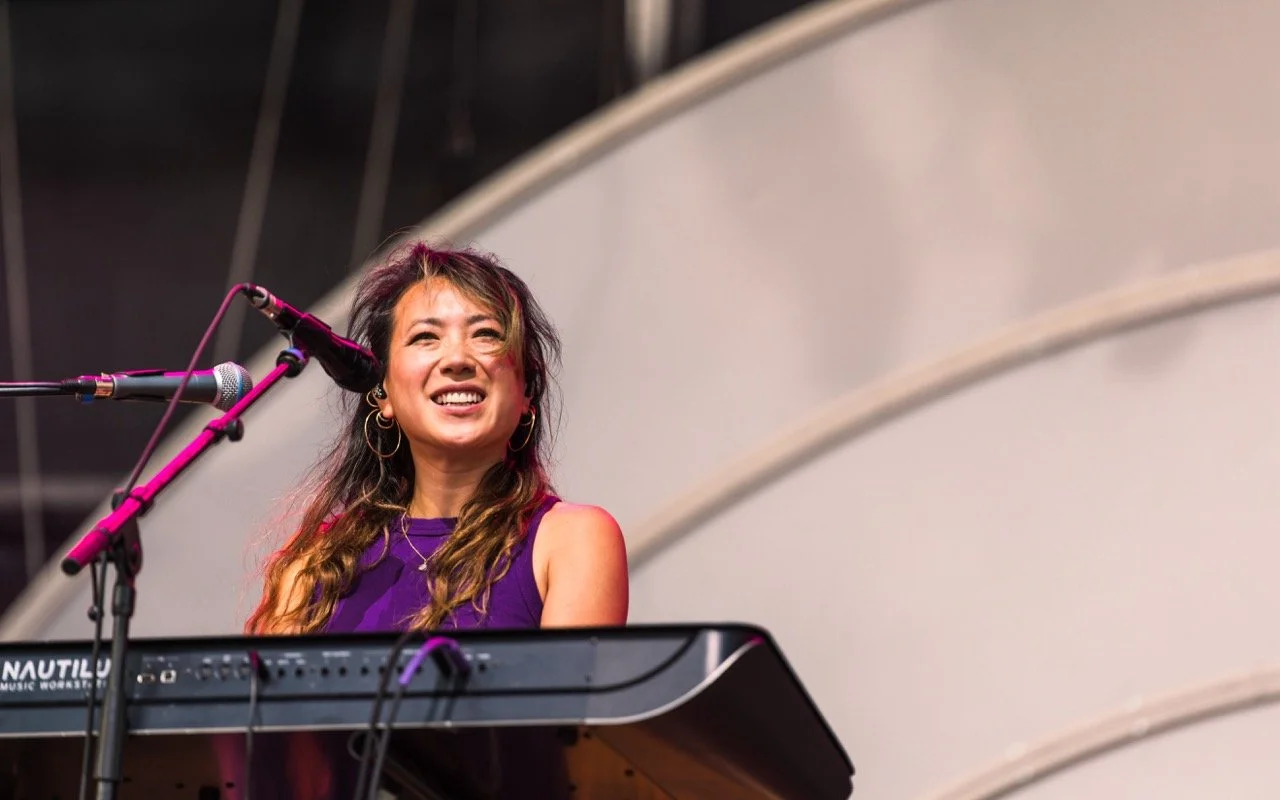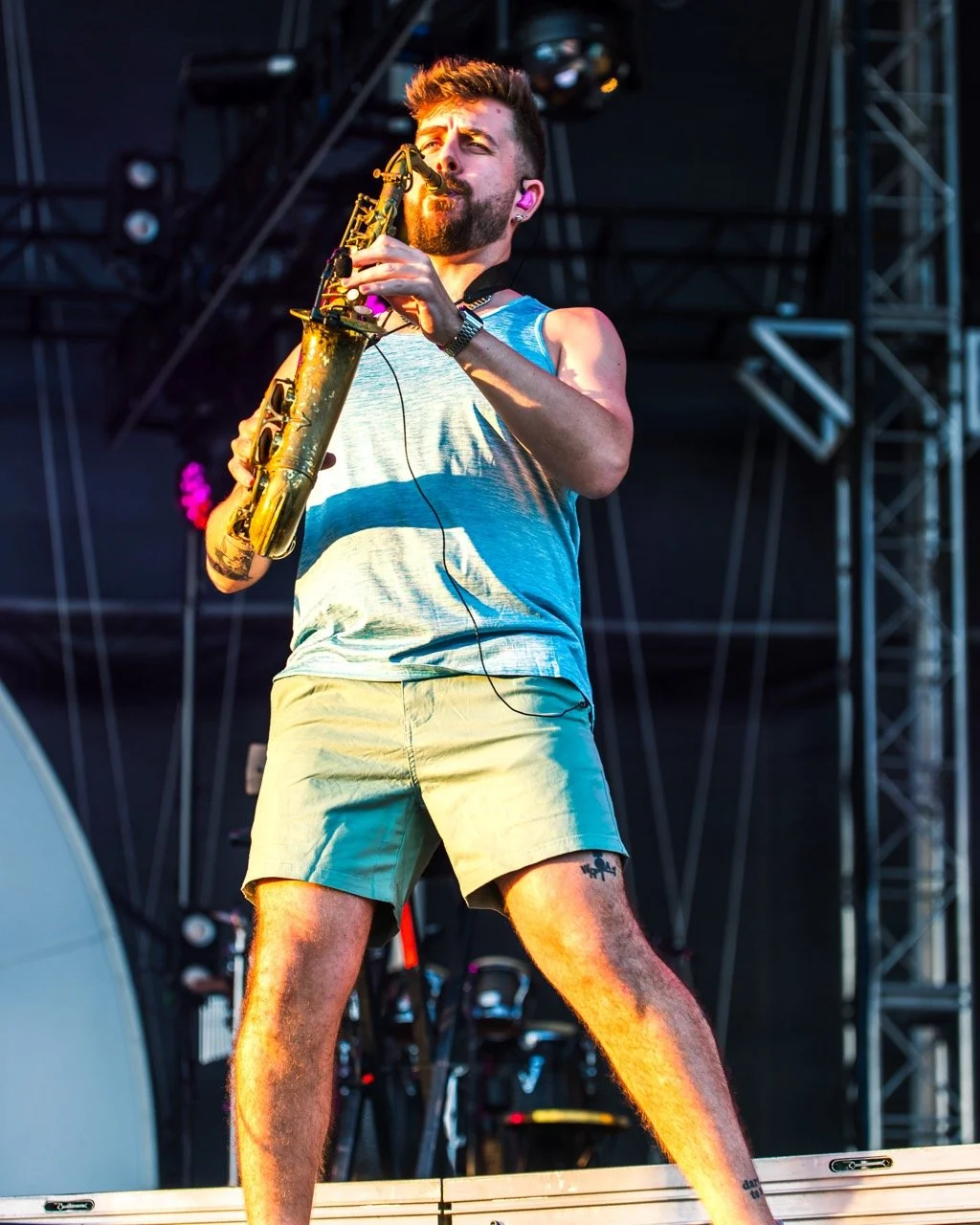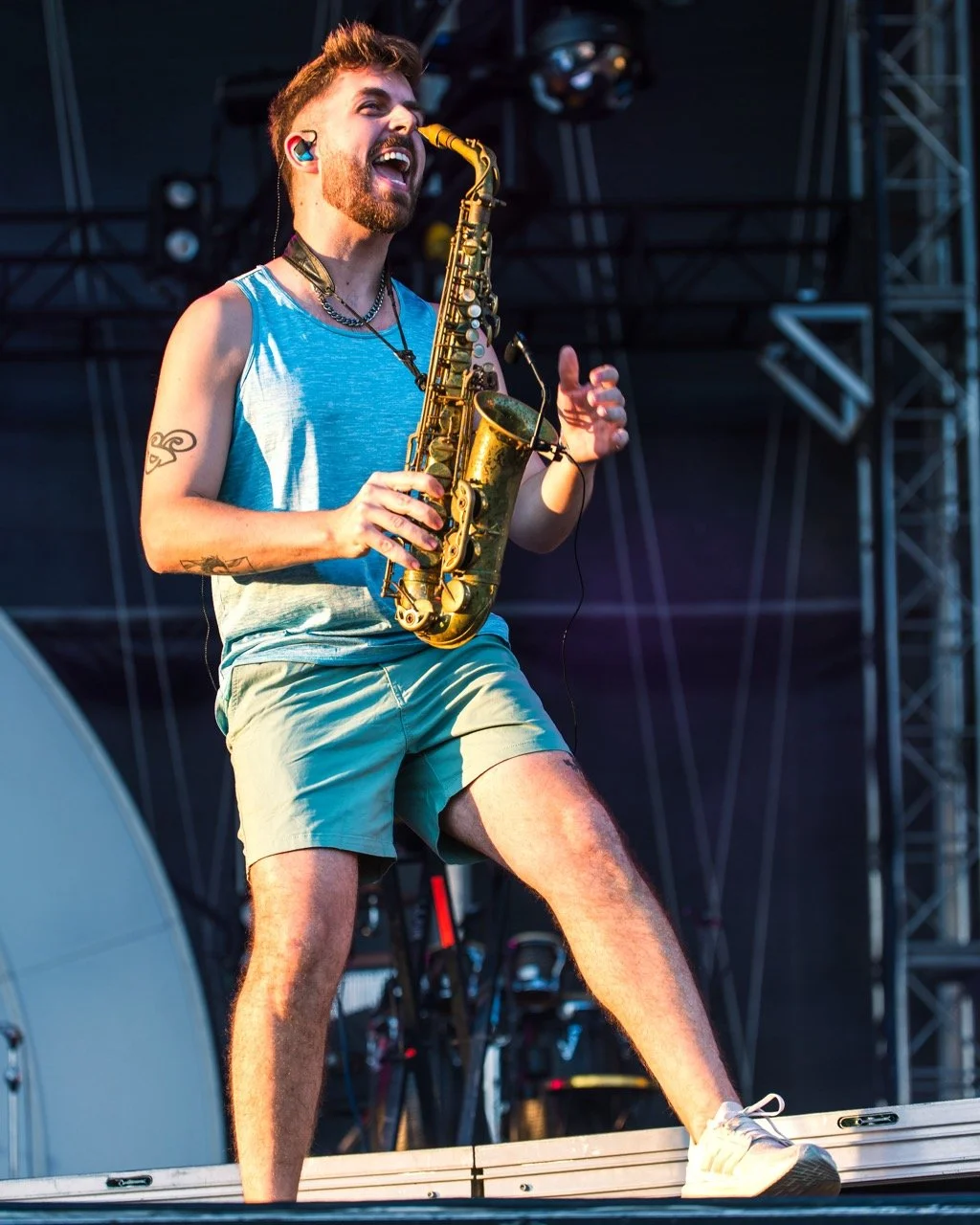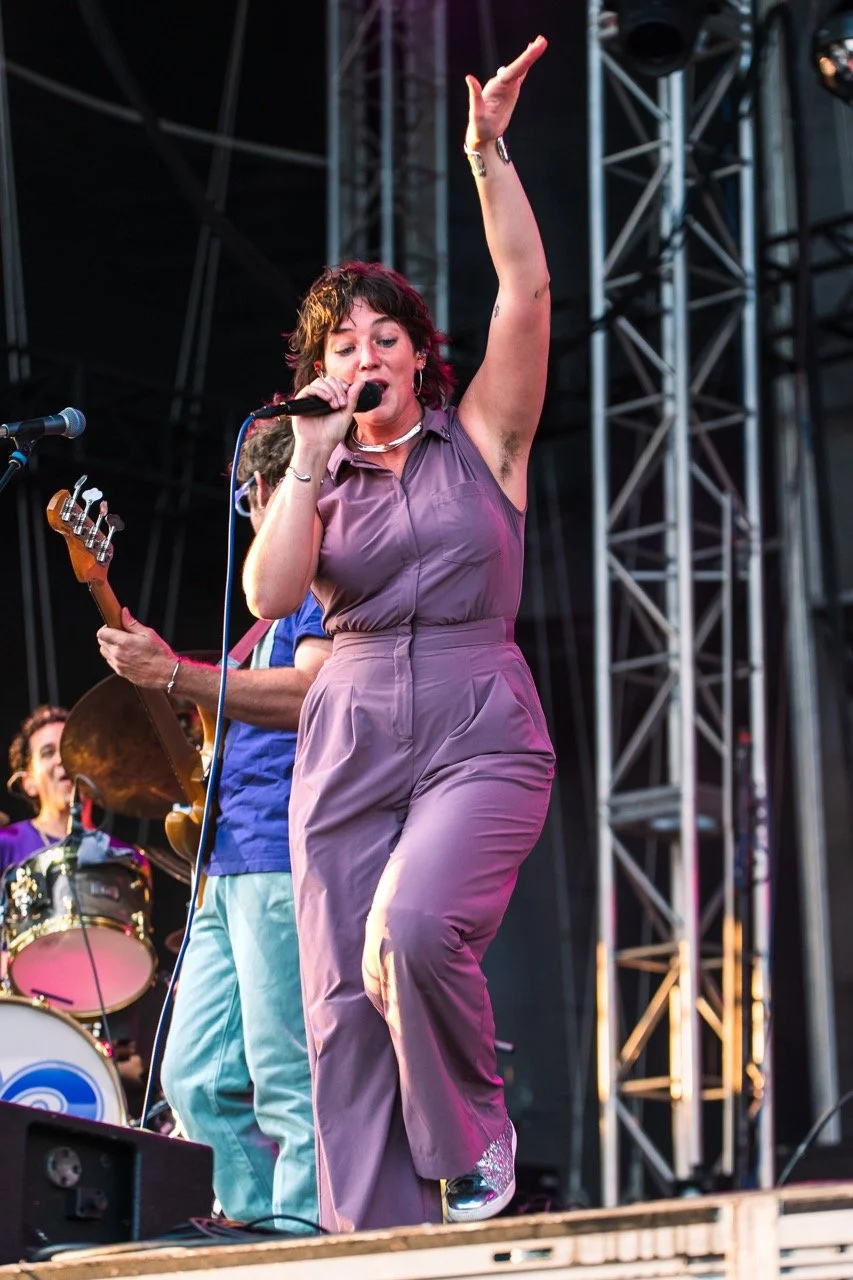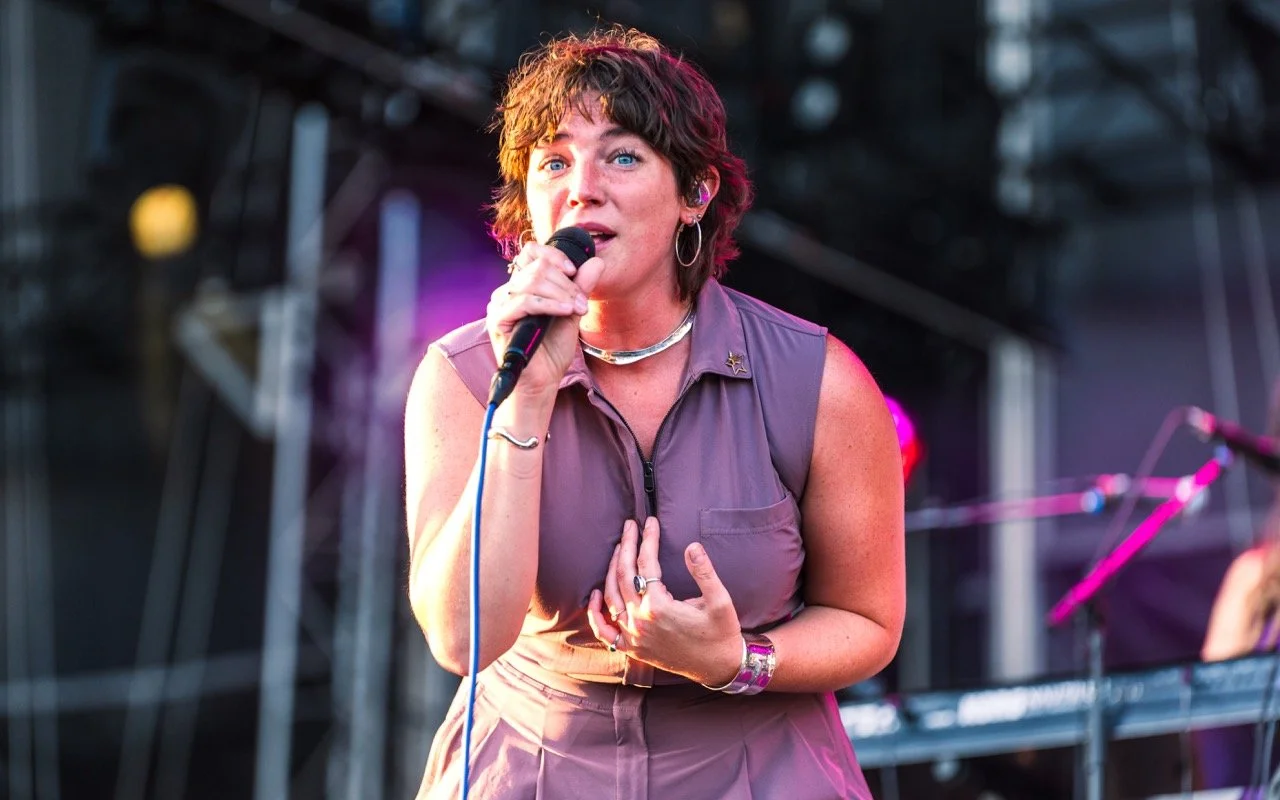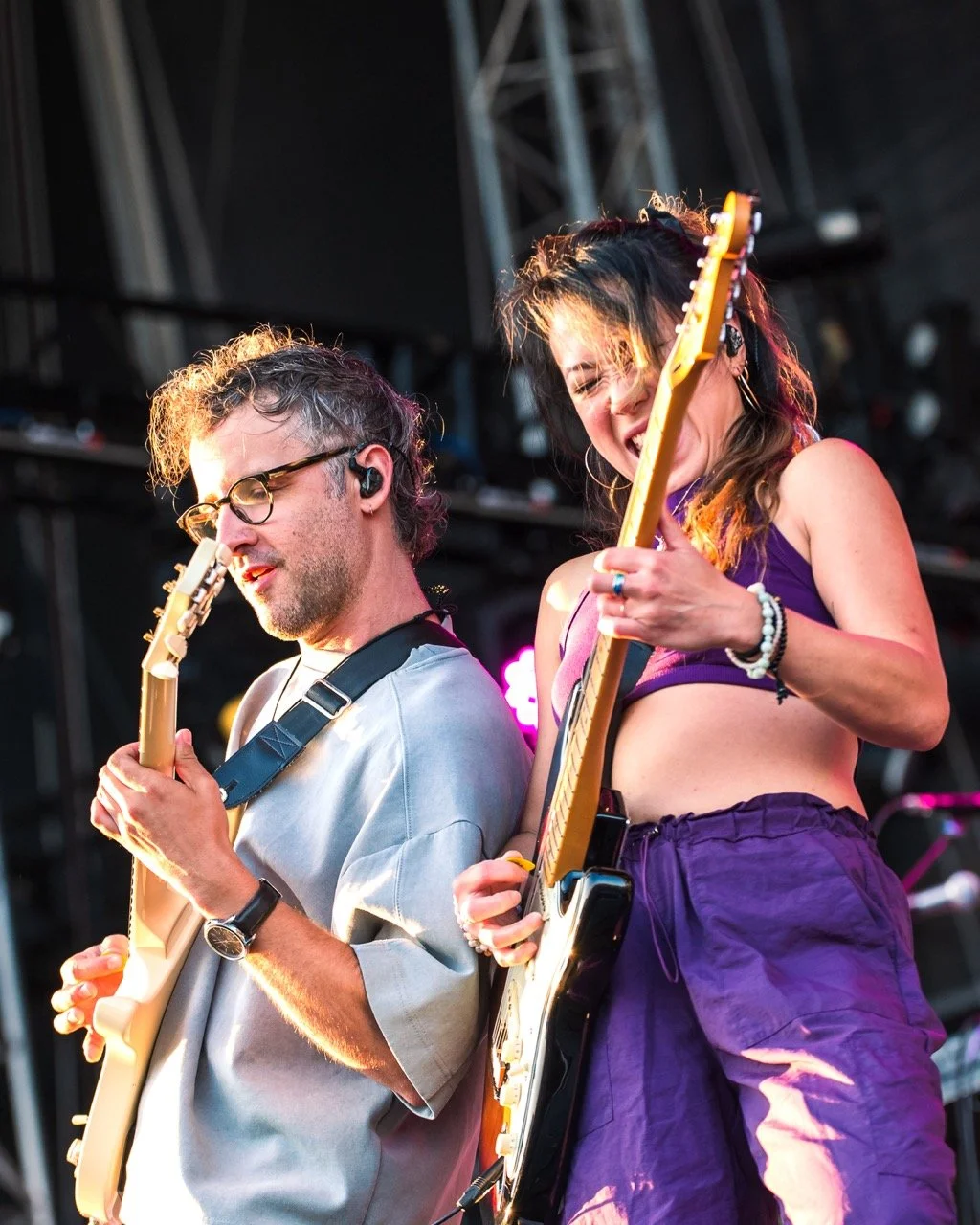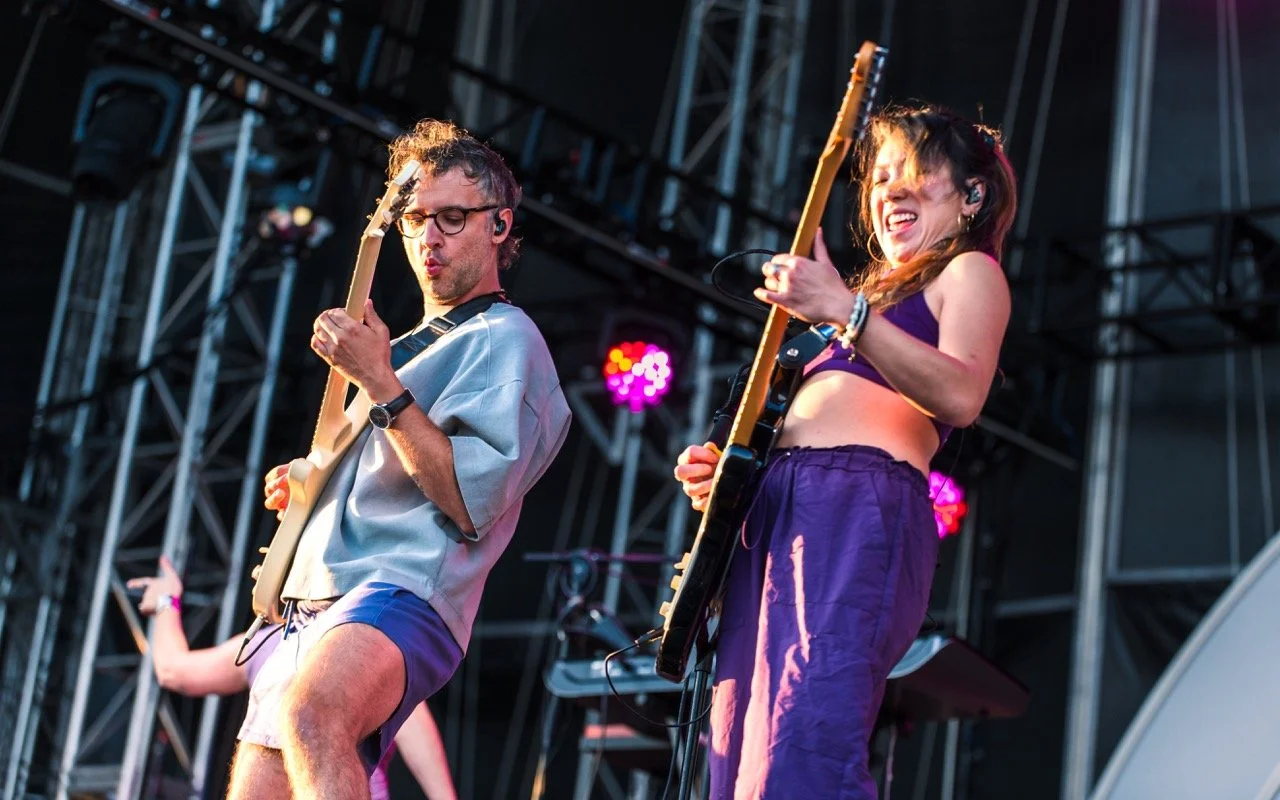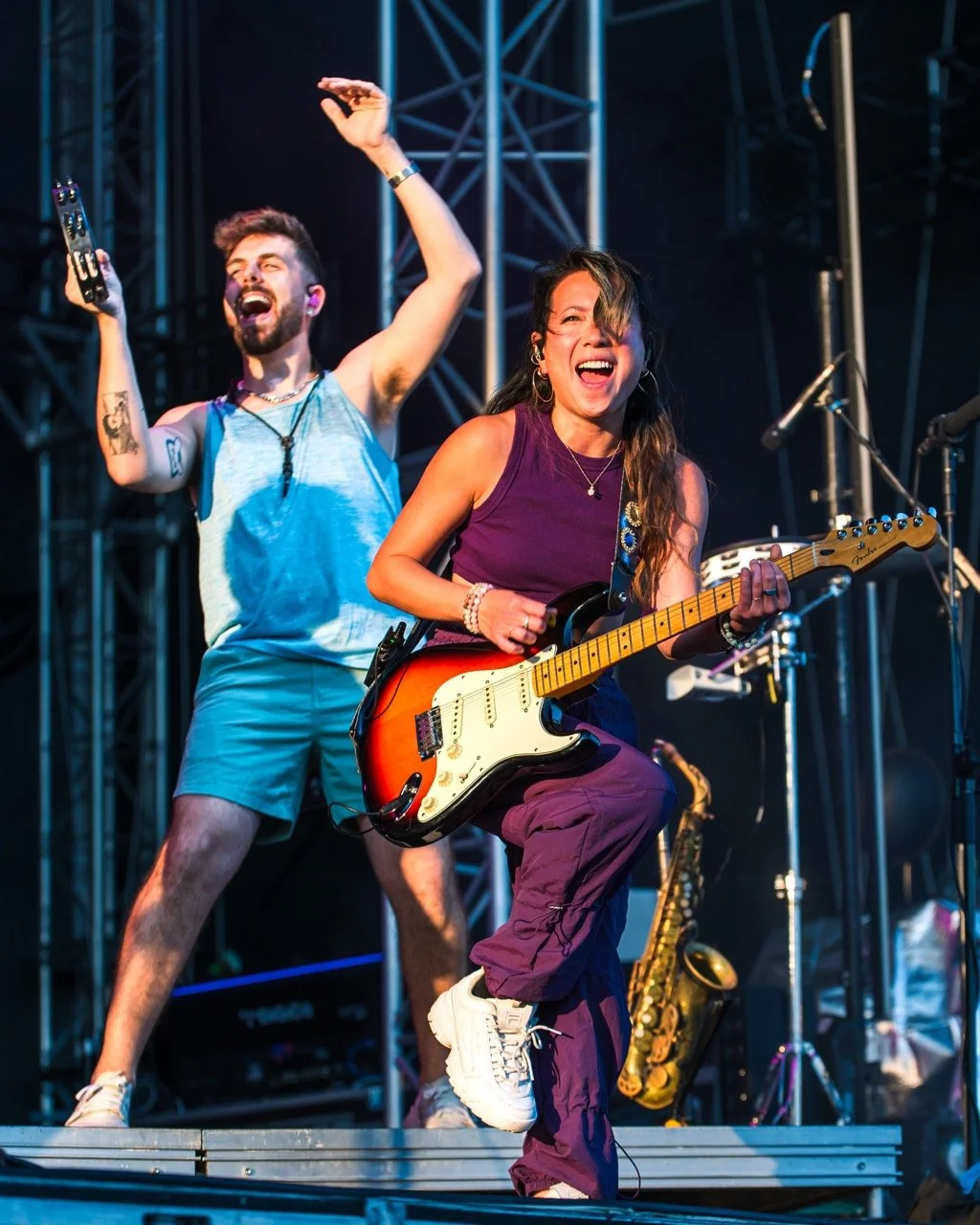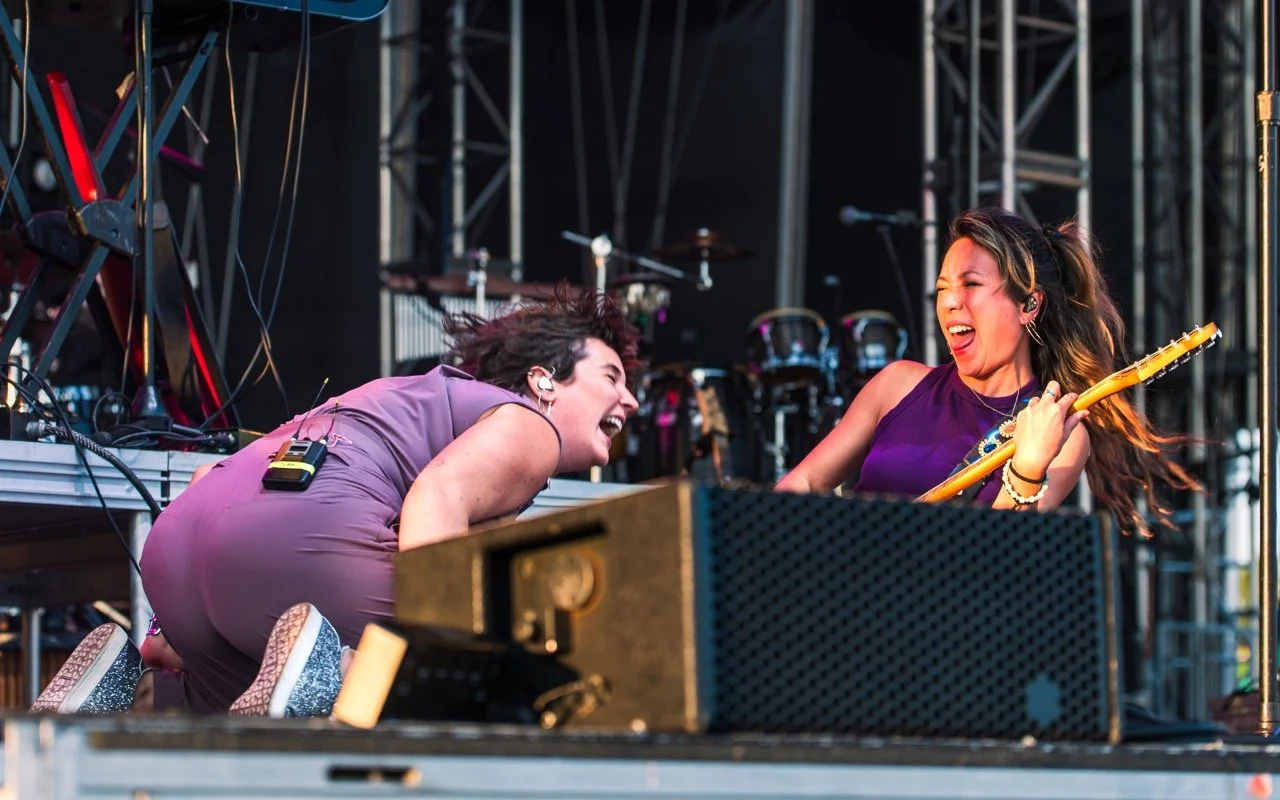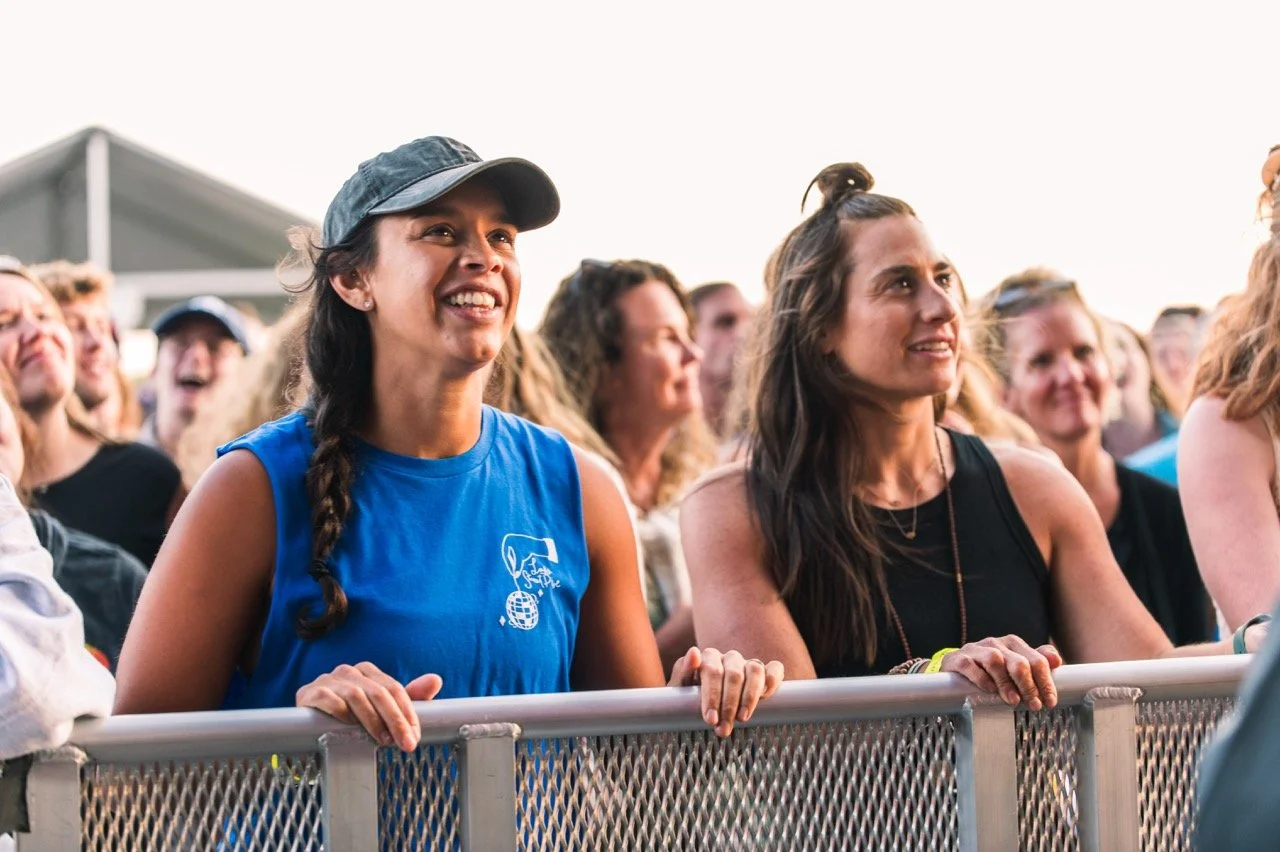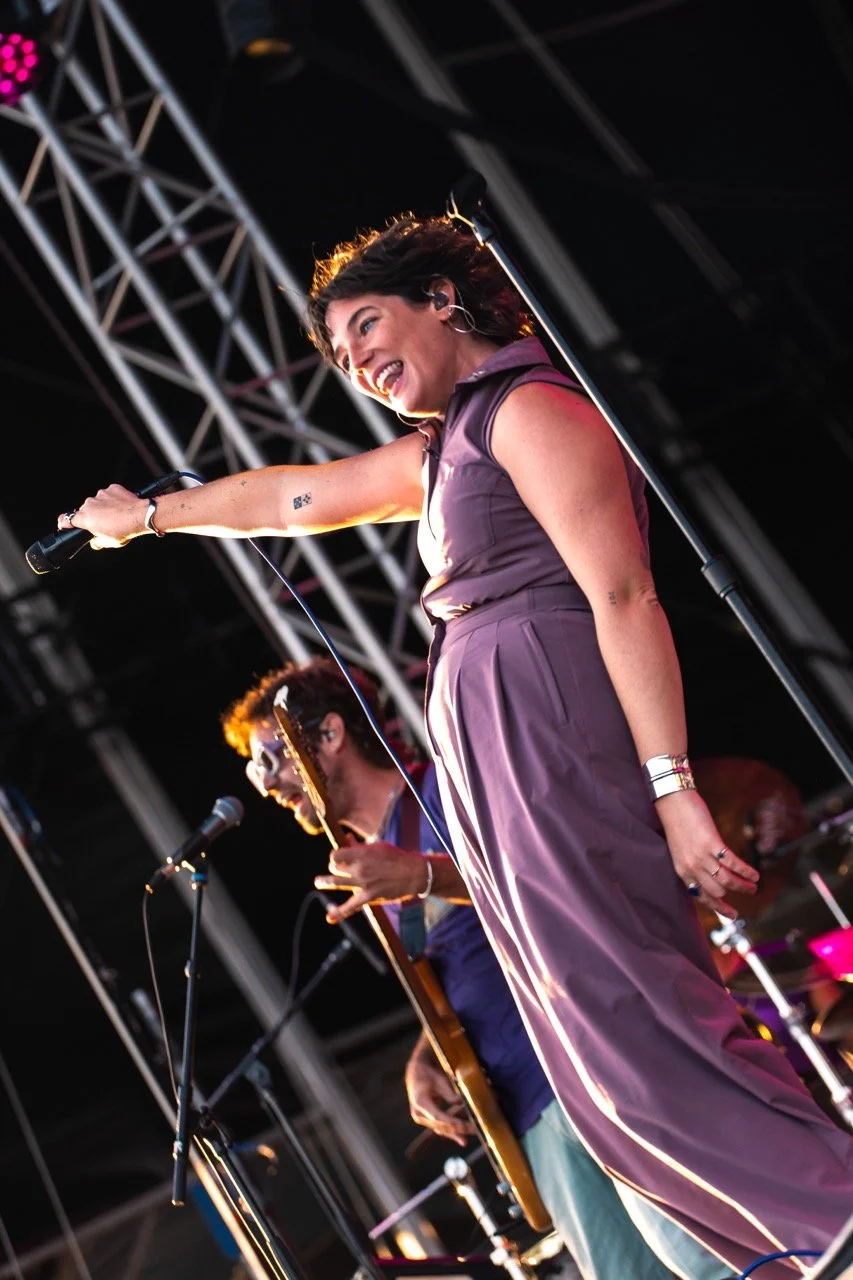Bigfoot, The Beach Boys, and band democracy: An interview with Sammy Rae
“We made an album and we didn’t tell you about it.” That’s the hook of Songs We Wish We Wrote, a collection of reimagined covers surprise dropped seemingly out of nowhere by Sammy Rae & The Friends. It was recorded privately at Dreamland Recording Studio in Woodstock, New York, a converted church tucked away in the woods.
“It was our first independent project,” she tells me before her set opening for Lake Street Dive. “No label, no outside producer, just us. We even took the cover photos ourselves. It’s a blessing and also a challenge, because there’s seven of us, seven producers, really, and you need everyone’s ideas on the table. But the best idea always wins. It’s never about who wins, it’s about what’s best for the song.”
That idea, democracy in a band of seven, is what gives Songs We Wish We Wrote its cohesion. Whether they’re tackling the wedding-band staple “Valerie” or cosplaying as a lovesick teenager in “Don’t Worry Baby,” The Friends manage to honor the bones of each track while still making them unmistakably their own. Rae calls it “polishing the songs so they shine like new,” rather than slapping on a coat of paint.
“It’s a blessing and also a challenge, because there’s seven of us, seven producers, really, and you need everyone’s ideas on the table. But the best idea always wins. It’s never about who wins, it’s about what’s best for the song.”
Dreamland and beyond
Recording at Dreamland had a full-circle feel: it’s the same space where the band made their first full-length original record, Something for Everybody. This time, the approach was tighter and sharper.
“We were in the studio for just four days,” Rae explains. “When we made Something for Everybody, it was almost two weeks. What we’ve learned since then is the value of an arrangement retreat. A friend of ours has a house up in Bedford, New York, so we went into the woods for about five days, arranging everything together. By the time we walked into the studio, all we had to do was hit record.”
The effect is obvious from the first note. Nothing on Songs We Wish We Wrote feels labored-over. Instead, it hums with the kind of pure joy that comes from a band that knows each other’s instincts intimately. “At this point we’re so tight,” Rae says. “When you hear the record, you’re really hearing us play live.”
Cover songs as polishing, not repainting
Take “Valerie,” one of the most-covered songs of the 21st century. When Rae suggested it, the band groaned. “Everyone and their cousin has covered ‘Valerie,’” she laughs. “Half my band plays it at weddings. But we wanted to shine it up in a way that tells the story from our perspective. Our hope is that it doesn’t sound like we’re repainting it, but that it shines like new again – so you can hear what’s different and then go back and appreciate the original, too.”
That philosophy runs through the record: respect the DNA of the song, but don’t be afraid to graft on some new muscle. “There are certain things you can’t not do,” she adds. “The singable parts, the riffs – otherwise it wouldn’t be that song. You can’t do ‘Are You Gonna Be My Girl’ without that guitar riff. You can’t skip the tambourine ripping your face off.”
Cosplaying an angry young man
The most surprising track on the record is “Don’t Worry Baby,” which Rae admits was a vocal challenge. The Beach Boys classic, sung from the perspective of a young man fighting anxiety, required her to inhabit a voice not her own.
“I was cosplaying as an angry young man,” she says, grinning. “It wasn’t about sounding beautiful or pure. It was about channeling angst, adding some dust and dirt in a safe way. I listened to a lot of folk-punk and pop-punk, thinking, ‘How can I shape the vowels differently, push the tone so it feels like teen heartbreak and anxiety?’ It was a fun character to step into.”
For Rae, who describes the band’s usual vibe as “hope core,” it was a striking departure. “Normally, it’s about showcasing hope and joy. But here, I wanted to show something else the voice could do. Frustration, anxiety, urgency.”
Mental health, masculinity, and brotherhood
“And my bandmates, five of the most emotionally intelligent men you could imagine, I’ve watched them learn how to love each other like brothers. Some of the magic of this project has been watching them feel comfortable expressing themselves. You gotta feel it to heal it.”
That performance connects to a theme running through Rae’s career: men’s mental health. The band’s 2021 track “David” and her onstage comments in Boston last fall both underline the subject.
“Brian Wilson was on my mind a lot with that song,” she says. “He lived a life always spotted by issues with his mental health, and it wasn’t fully understood. I was raised by very strong men, and the most beautiful moments were when they gave themselves permission to cry. That was powerful. And my bandmates, five of the most emotionally intelligent men you could imagine, I’ve watched them learn how to love each other like brothers. Some of the magic of this project has been watching them feel comfortable expressing themselves. You gotta feel it to heal it.”
It’s a subject rarely discussed so directly by artists, and Rae doesn’t shy away from its importance. “There were moments growing up where I wish the men in my life had given themselves permission to cry. It would’ve helped me through those moments better. Now I see that happening in my band. We’re a family, we have ups and downs, but watching these boys encourage one another to feel what they’re feeling? That’s magic.”
The artist’s role in 2025
Rae has never been afraid to speak on LGBTQ+ rights and social issues, but she’s careful about where to draw the line.
“There’s so much to be concerned about out there, and sometimes it gets a little signal virtue-y,” she says. “I’m not a news source, I’m an artist. My job isn’t to give you current events. My job is to distill how I feel, how my community feels, into art that helps people process. If I wanted to be a politician or a newscaster, I would’ve.”
That doesn’t mean she disengages. “I can’t move through 2025 as a queer, uninsured woman in the U.S. without being aware of both the privileges and the challenges I face. But it’s dangerous when people with platforms rush to consume information that isn’t fact-checked just to tell people what opinion they should have. It impacts your mental health, your ability to do your actual job – which is making art and getting on stage. When you’re constantly on the internet, you’re being surveilled. That’s not healthy.”
She pauses before adding: “You don’t choose how you stand up for what you believe in. The art chooses it for you.”
Music as an outlet in difficult times
That line leads naturally into her reflections on music’s purpose in difficult cultural moments. “What else am I gonna do?” she says. “I’m not just gonna sit here and throw my hands up. I need to contribute to the forward momentum of society. That’s my responsibility. Not to report the news, but to make art that helps people process what’s going on.”
And sometimes, she notes, that means easing up on the pressure of original songwriting. “When there’s so much to express, sometimes you don’t know where to start. So you make a covers record – you tell stories that others have already written, and focus on arrangement and musicianship. Then you’re ready to go to the other place, the next step – writing stories that are new and current and topical.”
Rube Goldberg, Bigfoot, and other dreams
For all the seriousness, Rae keeps a playful streak. When I ask what works of art, books, or inventions she wishes she could claim as her own, she lights up.
“I wish I invented the Rube Goldberg machine,” she laughs. “That’s some cool shit. And I still hold out hope I’ll be the one to discover Bigfoot. That’d be awesome. The Cryptozoology Museum is actually right across the street.” If you thought she was mentioning it just off the cuff, her obsession with cryptids is real. She took time from her set an hour later to encourage everyone to check out the museum.
Her dad has already imagined the headline: “Woman Who Discovers Bigfoot Also Has Band.” She runs with the bit. “And of course Bigfoot would be a union guy. Straight up stagehand, pushing cases, helping with load-in. That’s the kind of brute strength you need on your team.”
It’s a fitting close. Sammy Rae is a serious artist, a playful thinker, a bandleader, and would-be cryptid hunter. She might not have discovered Bigfoot yet, but with Songs We Wish We Wrote, she’s proven she knows how to make the familiar feel surprising all over again.
This interview was originally conducted for The Concert Chronicles. You can find the original article here.

